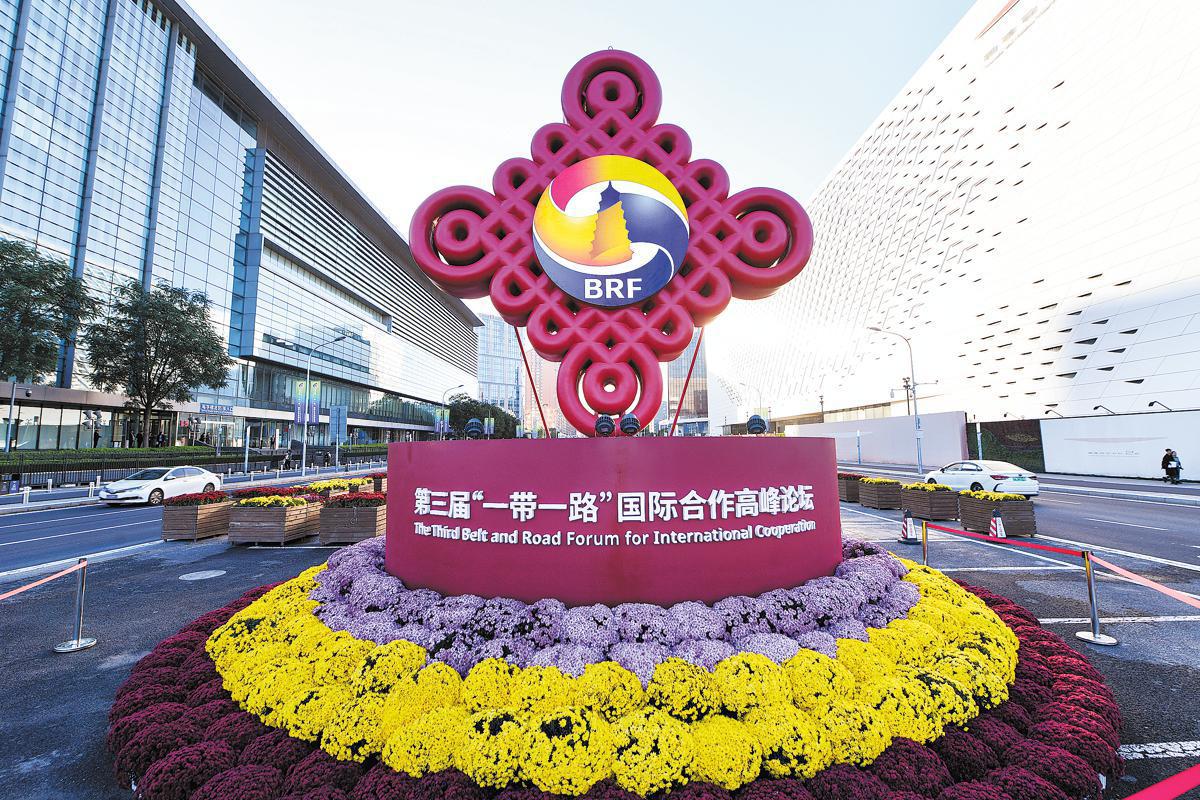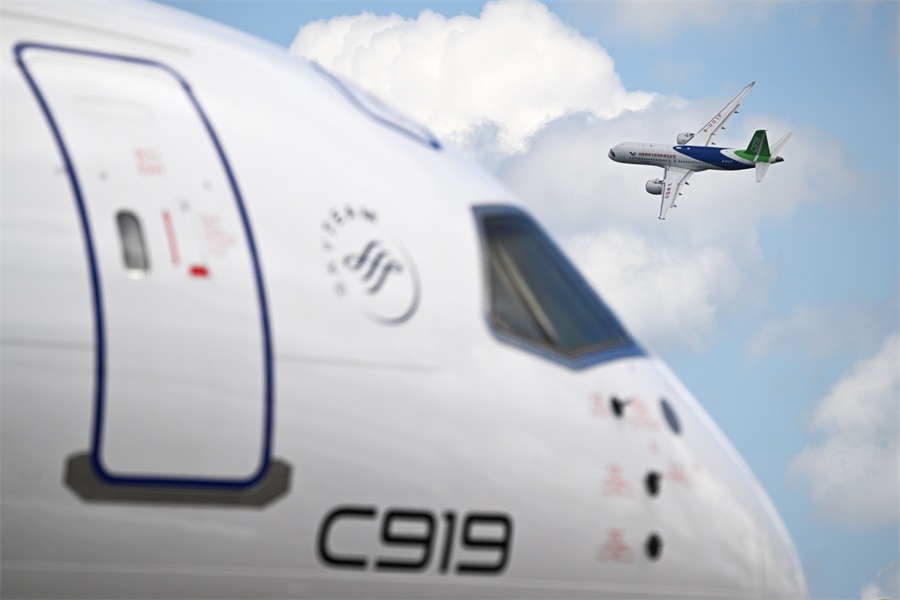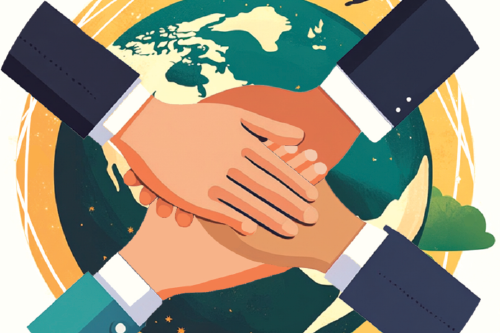Belt and Road cooperation will be more inclusive and innovative


In his speech at the third Belt and Road Forum for International Cooperation on Wednesday, President Xi Jinping emphasized that humankind is a community with a shared future and China can only do well when the world is doing well.
One of the major announcements President Xi made during the speech was that another 80 billion yuan ($10.93 billion) will be injected into the Silk Road Fund, saying that the Belt and Road Initiative will focus not just on infrastructure and trade, but also on promoting civilizational dialogue among Belt and Road countries. He said China is willing to share its prosperity with its neighbors and the rest of the world.
The pursuit of open, green and clean development
The new goals of the Belt and Road Initiative are open, green, and clean development. Xi stressed that further deepening cooperation is the only way to go forward. Clean, green development will be the new mantra of the initiative in the next decade, he said, adding that the Belt and Road is a global development initiative with sustainable development for all as its ultimate goal.
The main strength of the initiative is the involvement of more than 150 countries and 30 international organizations, which makes it one of the largest development initiatives in history. Earlier, to mark the 10th anniversary of the Belt and Road Initiative, President Xi announced some major plans to further expand the scope of the initiative.
The third Belt and Road Forum, which concluded on Wednesday, was attended by the representatives of many countries and global organizations, addressing whom, Xi said the international community is welcome to collectively find solutions to the major problems, including climate change, facing the world today.
While summarizing the experiences of the 10 years of the initiative, Xi said China is open to working with international organizations and learn from their experiences, not least because it adds value to the Belt and Road projects.
Emphasizing that the initiative's high-quality development will help modernize the countries of the Global South, he said the initiative is set to make greater contributions to global growth. Mutual learning and mutual benefit are the guiding principles of the initiative's policy, and China believes that the Belt and Road Initiative complements the other developmental plans in Asia, Africa and Europe.
The construction of railways, including high-speed railways, in some countries has already boosted their economic development. And China's funding and technologies have accelerated the development programs of many developing countries in Asia, Africa and Latin America. By building and improving infrastructure, China intends to further facilitate the smooth movement of goods and people in Asian, European and African countries. Underlining the importance of cultural exchanges among the Belt and Road countries, President Xi said the initiative will promote multilateralism and bridge the development gap between the Global North and the Global South.
The initiative will promote harmony among countries by using development as a major foreign policy tool, he said. Belt and Road projects are diverse and comprehensive, and facilitate the social and cultural development of the countries involved, promote mutual understanding among them, and create new opportunities for holding regular dialogue on the issues plaguing the world.
The initiative meets the developmental needs of the Belt and Road countries without imposing political or ideological conditions. Similarly, in a "volatile world, we (all nations) can jointly address various risks and challenges facing humanity today", Xi said. No wonder many countries have expressed confidence in the Belt and Road Initiative's ability to use innovative ideas to meet the different demands of the countries involved.
Creating equal opportunities for common prosperity
On the other hand, Russia has proposed that an international logistics corridor (Northern Sea Route) be built, a proposal that is still being discussed by the Belt and Road countries and might be finalized in the near future. The North Sea trade route being developed by Russia is another project the international community is looking forward to. Russian President Vladimir Putin has said that a mechanism for cooperation on logistics with BRICS member states should be established where all Belt and Road economies can discuss ideas such as developing more international trade corridors.
Countries of the Global South have realized that without infrastructure, real development cannot be achieved. Since supplying drinking water, building sanitation facilities and generating and supplying electricity to building and maintaining schools and hospitals, and providing internet services for the people cannot be done alone by many less-developed countries, the Silk Road Fund, the BRICS New Development Bank and the Asian Infrastructure Investment Bank should release funds to complete such development tasks.
Yet the availability of funds alone cannot guarantee good infrastructure. So Belt and Road countries should use the know-how and experiences of countries such as China to achieve their respective development goals. The Belt and Road projects can build a bright future only if they are properly implemented.
Indeed, the next decade will help the countries of the Global South to catch up with the developed world, by improving their infrastructure and creating equal opportunities for all to achieve common prosperity.
However, most of the challenges facing the initiative in the last decade are yet to be overcome. So Belt and Road countries should hold regular dialogue, and diversify their development projects to realize that goal.
But since building a new logistics hub or other major infrastructure facilities involves the movement and displacement of the local people, the governments need to be very careful while planning such projects. Providing transit facilities for goods and making available goods for all are considered a good idea only when minimum displacement takes place.
Also, the safety of Belt and Road projects in some countries has become a major concern for China and the host countries. This problem must be addressed by establishing cooperation mechanisms with the host and other Belt and Road countries. And as the safety of the people working on Belt and Road projects is of prime importance, there is a need, perhaps, to establish a Belt and Road project security coordination network to ensure the projects are not sabotaged by some individuals or organizations.
Besides, economic interdependence holds the key to the stability and peaceful growth of the global economy in the next decade. And attempts by some economies to "decouple" from other economies or disrupt the industry and supply chains and divide the developing countries reflect Cold War mentality that has no takers today. Geopolitical rivalry could prevent developing countries from realizing economic development at the pace and scale they desire.
Development and dialogue can address a lot of the problems facing the world today. China believes in action, and its decisionmakers are pragmatic enough to learn from their mistakes. So China will continue to lead the Belt and Road Initiative to achieve common development.
Like the AIIB and the NDB, the Silk Road Fund, too, should only support and finance clean and renewable energy projects. China has done a commendable job in improving its infrastructure and modernizing its power sectors, and therefore should share its experiences and technical expertise with other Belt and Road countries so they could achieve their respective development goals.
China has made donations to African countries which have played a crucial role in solving the power and connectivity problems in some countries.
Despite being accused of laying a "debt trap" and implementing opaque development programs, China will remain a major source of funding for large-scale infrastructure development projects in the Global South. As a saying goes, "If you want to go fast go alone, if you want to go far go together." China has chosen to travel together with other countries to achieve common prosperity.
If the development has a human face then 10 years is a small period of time to judge it. Nevertheless, China has sown the seeds and the plants have grown, raising hopes of building an equitable and better world.
The author is director of the BRICS Institute, New Delhi.
The views don't necessarily reflect those of China Daily.
If you have a specific expertise, or would like to share your thought about our stories, then send us your writings at [email protected], and [email protected].


































